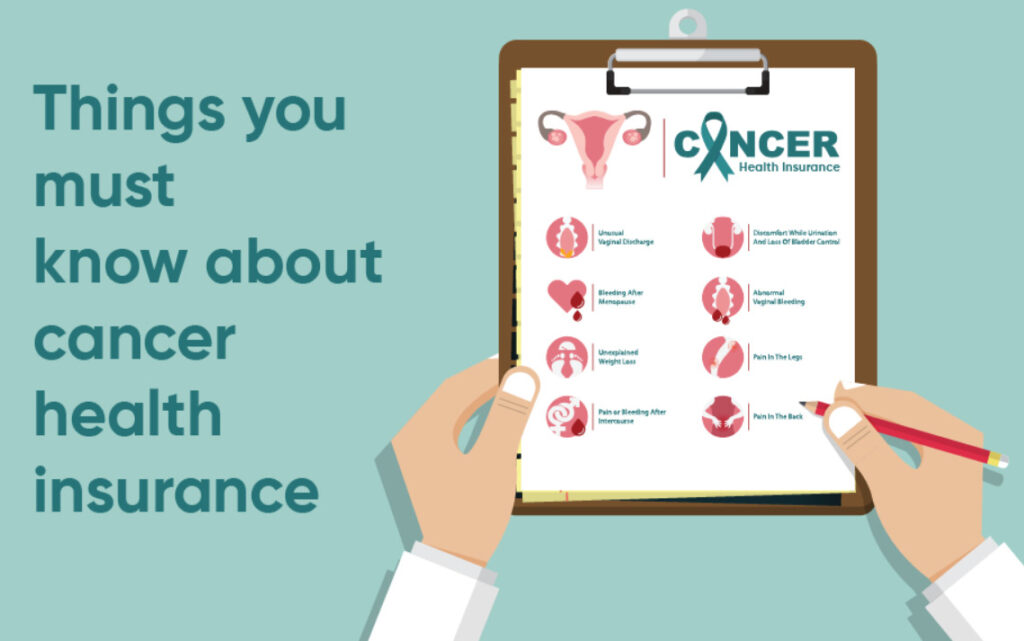Cancer insurance is often associated with financial protection, providing a safety net for medical expenses and related costs. However, there’s more to these policies than meets the eye. In this article, we’ll uncover the lesser-known benefits of cancer insurance that go beyond traditional financial coverage.
Understanding the Comprehensive Support:

1. Emotional and Mental Well-being:
Cancer diagnosis brings emotional challenges. Many cancer insurance policies offer support beyond financial aid, providing access to counseling services, support groups, and mental health resources. Understanding and managing the emotional impact is a crucial aspect of a comprehensive insurance plan.
2. Second Opinion Services:
Seeking a second opinion is a common practice in cancer diagnosis. Some insurance plans cover the costs associated with obtaining a second opinion, ensuring that individuals can make informed decisions about their treatment options without financial constraints.
When facing a cancer diagnosis, obtaining a second opinion is a crucial step in ensuring comprehensive and well-informed decision-making. Recognizing the significance of this, certain cancer insurance plans go beyond financial coverage and extend support for accessing second opinion services.
a. What Does Second Opinion Coverage Entail?
Some cancer insurance policies cover the expenses associated with seeking a second opinion from a different healthcare provider. This coverage can encompass consultations, diagnostic tests, and related medical expenses incurred during the process of obtaining a second professional perspective on the diagnosis and recommended treatment plan.

b. Choosing Your Specialist:
With second opinion services, policyholders often have the flexibility to choose specialists from a network of recognized healthcare professionals. This empowers individuals to consult with experts who specialize in their specific type of cancer, ensuring a thorough evaluation and diverse perspectives on the recommended treatment options.
c. Navigating Treatment Options:
The second opinion process is not just about confirming a diagnosis; it’s also about exploring alternative treatment options. Comprehensive cancer insurance plans may cover the costs of consultations with specialists who can provide insights into innovative treatments, clinical trials, and personalized approaches to care.
d. Incorporating Latest Medical Advances:
Access to second opinion services may involve consultation with experts who are abreast of the latest medical advances and research in cancer treatment. This ensures that individuals can benefit from cutting-edge knowledge and potentially explore treatment options that align with the latest advancements in oncology.
e. The Financial Aspect:
It’s essential to understand the financial aspects of second opinion services covered by the insurance plan. This includes clarity on coverage limits, any out-of-pocket expenses, and the process for reimbursement. Knowing the financial parameters helps individuals make informed decisions without worrying about unexpected costs.
3. Holistic Care Coverage:
Beyond medical treatments, holistic care such as acupuncture, massage therapy, and nutritional counseling can play a vital role in cancer patients’ well-being. Certain cancer insurance plans may cover these alternative therapies, recognizing the importance of a holistic approach to healing.
4. Transportation and Lodging Assistance:
Traveling for specialized treatments or accessing renowned medical facilities might be necessary. Some cancer insurance policies provide coverage for transportation and lodging expenses, ensuring that individuals can focus on their recovery rather than logistical challenges.
Key Considerations for Choosing the Right Plan:
1. Comprehensive Policy Review:
When selecting a cancer insurance plan, look beyond financial coverage. Assess the additional benefits offered, considering the holistic needs of cancer patients and their families.
2. Network of Support Services:
Explore the insurance provider’s network of support services. Access to a diverse range of resources, from mental health professionals to alternative therapy providers, can significantly enhance the overall value of the insurance plan.

3. Transparent Communication Channels:
Effective communication is essential during challenging times. Choose an insurance provider that prioritizes transparent communication, providing clear information about the various benefits and support services available.
Frequently Asked Questions:
Q1: Is a second opinion covered for any type of cancer diagnosis?
A: The coverage for second opinion services can vary. It’s crucial to review your specific cancer insurance policy to understand the scope of coverage for seeking a second opinion and the types of cancer diagnoses included.
Q2: Can I choose any specialist for a second opinion?
A: Many cancer insurance plans provide flexibility in choosing specialists from a network of recognized healthcare professionals. Check with your insurance provider to understand the options available to you.
Q3: Are travel expenses covered for seeking a second opinion?
A: Some policies may cover transportation and lodging expenses associated with obtaining a second opinion. Review your policy details to determine if such benefits are included.
Q4: How do I initiate the process of getting a second opinion covered by my insurance?
A: Contact your insurance provider for guidance on the process of seeking a second opinion. They can provide information on approved specialists, documentation requirements, and any pre-authorization steps.
Q5: Is there a limit to the number of second opinions covered by the insurance?
A: Policies may have limits on the number of covered second opinions. It’s essential to be aware of any such limitations outlined in your specific insurance policy.
